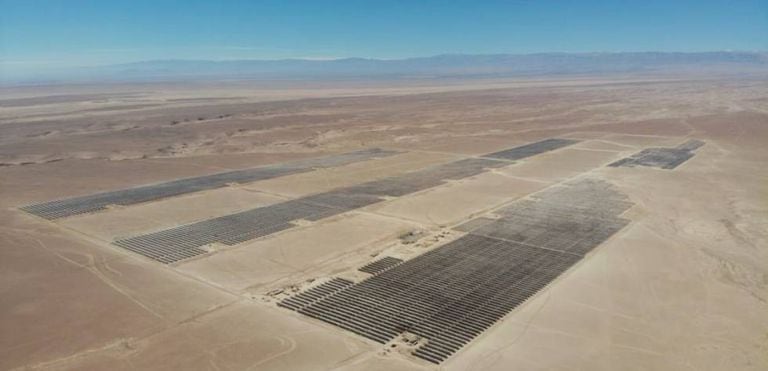Grenergy solar park in Chile.
After seven years of slow growth, Latin American countries will experience their greatest contraction in recent decades as a result of the crisis produced by the covid-19 pandemic, deepening the social and economic problems that affect a good part of the population and, in particular, the most vulnerable and low-income sectors.
Despite this difficult and complex situation, there are many reasons to be optimistic about the future of Latin America.
The region has abundant natural resources and a young and diverse population.
The energy sector could be one of the engines of a sustainable, resilient and inclusive recovery in Latin American economies.
The region is a leader in the use of renewable energy.
Today, more than 55% of its electricity is generated from renewable sources, well above the world average of 35%.
The use of renewable energy for transportation in the region is also well above average.
This is largely due to pioneering hydroelectric and biofuel projects, combined with a tradition of innovative policies and technological solutions, such as the Brazilian renewable energy auction model that, with some variations, have been replicated throughout the world.
Latin America can go much further thanks to its large wind and solar resources, and it is beginning to do so.
Large solar projects are being built in northern Chile and Argentina.
Those two countries, along with Colombia and Brazil, have barely tapped into their huge wind power potential.
Another evidence of this is the initiative to reach a regional goal of installed capacity in Renewable Energies in Latin America and the Caribbean (RELAC), led by Colombia, Chile and Costa Rica, which so far has received the adhesion of 10 countries.
We applaud and support this initiative.
Today, Latin American governments face the challenge of charting a safe and sustainable path out of the COVID-19 crisis and stepping their citizens, economies and energy systems towards a more stable base.
The pandemic is expected to push another 16 million people in Latin America into extreme poverty this year, bringing the total to more than 83 million.
Millions of Latin Americans live in precarious homes, often without access to modern energy services such as running electricity and clean cooking.
This highlights the importance of ensuring that economic recovery measures are as inclusive as possible and benefit the most vulnerable populations.
The IEA Sustainable Recovery Plan shows how government actions focused on the efficient use and use of resources over the next three years can boost economic growth and create jobs, while reducing gas emissions from greenhouse effect and access to energy is universalized.
Measures to provide modern and efficient energy services can generate multiple benefits for households, such as better indoor air quality and better access to sanitation.
In Latin America, economic and social recovery efforts may find an opportunity in the energy sector to make smart use of the region's strengths.
Policies and investments to accelerate the transition to clean, affordable and modern energy technologies can help generate quality jobs while improving the competitiveness of economies and the productivity of workers.
The treatment of these issues, with the seriousness and depth that is required, has motivated us to jointly organize a Ministerial Round Table of Latin America on October 7.
The event will bring together ministers and other energy leaders from across the region to discuss how to chart its clean energy future, mobilize investment and foster innovation in a way that spurs economic development and creates opportunities for all.
Fatih Birol
, is Executive Director of the IEA (International Energy Agency).
Alfonso Blanco
is Executive Secretary of OLADE (Latin American Energy Organization).

